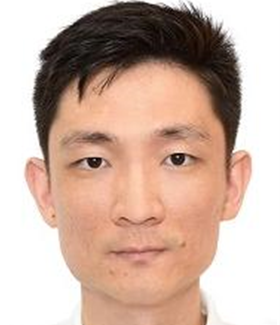There is a demand for high bandwidth in autonomous vehicles, where time-sensitive networking (TSN) is a promising solution. According to IEEE 802.1, a port in a TSN switch has eight prioritized FIFO (first-in-first-out) queues, whose gates are opened or closed following a gate control list (GCL). Most of the existing works use one TT (time-triggered) queue for the hard real-time traffic, i.e., traffic flows with hard deadlines, which easily achieves timing determinism through GCL. Unfortunately, as a rigid mechanism, GCL is not able to handle timing jitter. In this work, we propose a hybrid strategy for robust TSN. GCL is applied to only one queue named TT T1 for a small number of hard real-time flows with negligible jitter. The remaining flows with hard deadlines are allocated to a prioritized queue named TT T2 without GCL. Similarly, GCL is removed from all other queues handling AVB (audio-video-bridging) flows with soft deadlines and BE (best-effort) flows with no deadlines. Two analyses are proposed to obtain delay bounds for the TT T2 flows and periodic AVB flows, respectively, with interference from TT T1. Although safety is not compromised if the periodic AVB flows miss their deadlines, it is often desirable in practice to satisfy them for quality of service. In order to strike a balance, contention between the AVB queues is resolved with credit values on top of priorities. Experiments support that the delay bounds for the TT T2 and AVB flows are safe. In addition, changing the credit function can lead to different delay bounds of AVB flows, which is valuable for real-world configurations of TSN.

Professor, College of Computer Science and Electronic Engineering
Hunan University
Wanli Chang is currently a Distinguished Professor in the College of Computer Science and Electronic Engineering, Hunan University, China, under the prestigious National Recruitment Program, and a Foreign Fellow in the Ministry of Science and Technology. He is the Chief Scientific Advisor on real-time and embedded systems in Huawei Technologies. His research is focused on all aspects of real-time, embedded, and cyber-physical systems. Before coming back to China at the end of 2020, he had a permanent faculty position in the Department of Computer Science, University of York, UK. He received Ph.D. from the Technical University of Munich, Germany, in 2017, and won the Best Dissertation Award. His bachelor's degree was from Nanyang Technological University, Singapore. He is the Secretary of ACM SIGBED by election and an EC member of ACM SIGDA. He chairs the Ph.D. Dissertation Award Committee of ACM SIGBED and the Autonomous Systems Track of DAC.